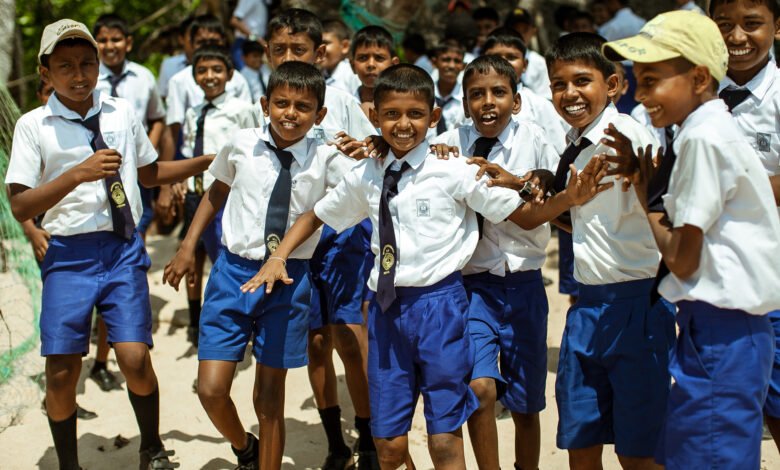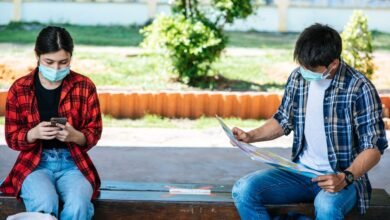Schools & Colleges Reopening in Telangana: A New Chapter for Education

After prolonged closures due to the COVID-19 pandemic, educational institutions in Telangana are finally reopening their doors. The state government’s decision marks a pivotal shift toward restoring normalcy in academia, but it also raises questions about safety protocols, hybrid learning models, and the emotional well-being of students and staff. This article explores the multifaceted implications of this transition and what it means for the future of education in Telangana.
Government Guidelines for Safe Reopening
The Telangana government has introduced a detailed framework to ensure the safe resumption of in-person classes. Institutions are mandated to enforce strict hygiene practices, including frequent sanitization of classrooms, compulsory mask-wearing, and social distancing in common areas. Thermal screening at entry points and staggered timetables to reduce crowding are also part of the protocol. Vaccination drives targeting students aged 15 and above, along with faculty members, have been prioritized to mitigate health risks. Additionally, schools and colleges are required to designate isolation rooms for symptomatic individuals and collaborate with local health authorities to monitor outbreaks. While these measures aim to balance safety and continuity, their implementation varies across urban and rural institutions due to disparities in resources.
Impact on Students and Educators
The reopening has brought a mix of relief and anxiety for students and teachers alike. For many learners, especially those in rural areas with limited digital access, returning to physical classrooms offers a chance to bridge learning gaps caused by inconsistent online education. Face-to-face interactions are expected to revive peer engagement and improve mental health, which suffered during prolonged isolation. However, educators face the daunting task of covering backlogs while adhering to reduced class hours and safety norms. Teachers also express concerns about managing hybrid classrooms, where some students continue remote learning due to health vulnerabilities. The emotional toll of readjusting to pre-pandemic routines—coupled with the pressure to perform academically—has prompted calls for counseling support and flexible assessment strategies.
Infrastructure Challenges in Post-Pandemic Classrooms
Many institutions, particularly government-run schools and colleges, are grappling with infrastructural shortcomings exacerbated by the pandemic. Overcrowded classrooms, inadequate ventilation, and insufficient sanitation facilities pose hurdles to enforcing safety guidelines. Rural schools, which often lack reliable electricity and internet connectivity, face additional challenges in integrating hybrid learning tools. To address these issues, the state has announced funding allocations for upgrading facilities, but delays in execution and bureaucratic bottlenecks persist. Private institutions, meanwhile, are investing in smart classrooms and air purification systems to attract enrolments, widening the gap between privileged and under-resourced students.
The Rise of Hybrid Learning Models
The pandemic has permanently altered education delivery, prompting schools and colleges to adopt blended learning approaches. In Telangana, many institutions are combining in-person lectures with online modules for assignments and revisions. Platforms like Google Classroom and state-sponsored portals such as “T-SAT” continue to play a critical role in ensuring accessibility for students who cannot attend regularly. While hybrid models offer flexibility, they also demand digital literacy among educators and students—a challenge in regions with low tech penetration. Critics argue that over-reliance on technology could marginalize disadvantaged groups further, emphasizing the need for equitable access to devices and internet connectivity.
Community Responses and Parental Concerns
Parents and local communities have expressed mixed reactions to the reopening. While many welcome the return to structured learning environments, others remain apprehensive about exposing children to potential infection. Parent-teacher associations are advocating for transparency in reporting COVID-19 cases within campuses and greater involvement in decision-making. In contrast, low-income families, reliant on midday meals and school supplies, view reopening as essential for their children’s nutrition and academic progress. Public awareness campaigns highlighting safety measures and vaccination benefits are underway to build trust and encourage higher attendance rates.
The Road Ahead: Sustainability and Innovation
The reopening of schools and colleges in Telangana is not just a return to the past but a step toward reimagining education. Lessons from the pandemic—such as the importance of digital infrastructure and mental health support—are likely to shape long-term policies. The state government is exploring partnerships with ed-tech firms to democratize access to quality resources, while universities are revising curricula to include skill-based training for a post-pandemic economy. As institutions navigate this transitional phase, collaboration between policymakers, educators, and communities will be crucial to building a resilient and inclusive education system.
Closing Thoughts:
The reopening of Telangana’s educational institutions symbolizes hope and resilience, but it also underscores systemic inequities that demand urgent attention. By prioritizing safety, innovation, and equity, the state can transform this challenging phase into an opportunity to redefine education for future generations.

